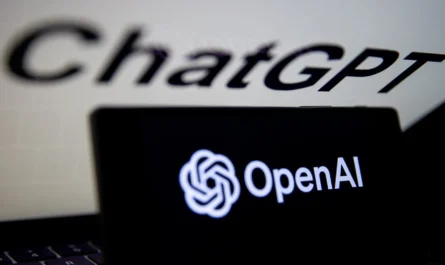Perplexity, the creators of the popular AI-powered answer engine, has unveiled a dedicated election hub designed to help users understand political topics, make informed choices, and follow election results in real time. The announcement came on November 1, when the company shared details in a blog post about its upcoming coverage for state and national elections.
This election hub integrates information from trusted organizations, including Democracy Works and The Associated Press, offering updates on the presidential race, as well as senate and house campaigns across the United States. The goal is to provide a comprehensive, AI-assisted platform for voters who want guidance beyond traditional news reporting.
What the Election Hub Offers
Perplexity’s AI hub is designed to go beyond simple polling results. Users can expect:
-
Candidate Profiles: AI-generated summaries of candidates, including their policy positions, political endorsements, and campaign priorities.
-
Ballot Initiative Explanations: Detailed overviews of statewide initiatives, amendments, and referendums.
-
Voting Guidance: Information about voting requirements, polling locations, and polling hours, tailored to each user’s location.
-
Source Transparency: Each AI-generated answer cites the sources used, enabling users to verify information and dive deeper into topics of interest.
By providing accessible, easy-to-understand content, Perplexity aims to bridge the information gap for voters who may find traditional resources overwhelming or fragmented. The platform’s AI also allows users to ask follow-up questions for clarification, creating an interactive educational experience.
Real-Time Updates on Election Day
One of the standout features of Perplexity’s hub is its commitment to real-time election tracking. Users will be able to monitor vote counts and developments as they unfold, helping them stay informed about ongoing results in presidential, senate, and house races.
By pulling data from reliable aggregators like the Associated Press, the AI can quickly reflect updates without relying solely on static websites or social media reports. This is especially valuable in fast-moving elections, where early projections, recounts, and close-call states can create confusion for voters.
Accuracy and Reliability Concerns
While Perplexity emphasizes the hub’s trustworthiness, AI-generated election content has historically faced accuracy challenges. Research and surveys have highlighted potential pitfalls:
-
A July survey found that over one-third of AI chatbot responses to election questions were inaccurate. This included outputs from competitors like Gemini and Claude.
-
Certain AI systems performed poorly for non-native English speakers and individuals with accessibility needs, raising questions about inclusivity and fairness.
These findings underscore the importance of verified sourcing and careful oversight when deploying AI for politically sensitive topics.
Why Other AI Platforms Are Hesitant
Many AI companies have avoided providing election outcome predictions due to concerns about misinformation. For example:
-
OpenAI’s ChatGPT Search experience directs users to Reuters and the Associated Press for official election results rather than generating its own interpretations.
-
Similarly, Google’s Gemini and Anthropic’s Claude refrain from answering election outcome queries directly, opting instead to link to established news organizations.
Perplexity’s hub is notable because it actively combines AI interpretation with sourced updates, offering a balance between machine-assisted guidance and verified reporting. However, users should remain aware that AI tools can still make errors, particularly when interpreting rapidly changing election data.
How Perplexity Supports Informed Voting
The core mission of the Perplexity election hub is to provide voters with trusted, accessible information to help them navigate complex elections. Some of the key benefits include:
-
Simplified Explanations: Complex political issues, legislative proposals, and candidate positions are summarized in concise, readable formats.
-
Interactive Q&A: Users can ask AI questions in plain language and receive answers that incorporate multiple sources, including official statements and media coverage.
-
Location-Specific Guidance: Voting instructions, polling locations, and deadlines are tailored based on user input, reducing confusion on how and where to vote.
-
Transparency of Sources: Each answer references its information, allowing users to trace facts back to primary sources such as state election offices or established news agencies.
By blending AI with verified data, Perplexity aims to empower voters, especially those who may feel overwhelmed by the volume of political information online.
Limitations and Considerations
Despite these advantages, the Perplexity hub is not infallible. AI models can misinterpret information, fail to capture nuances, or produce outdated answers if sources are not refreshed promptly. Experts advise users to:
-
Cross-check AI responses with official election websites or reputable news outlets.
-
Be cautious of third-party sources that claim election results or candidate information.
-
Remember that AI summaries are interpretations of data, not official statements from election authorities.
These steps help mitigate the risk of relying solely on AI for election decisions, especially in highly competitive or controversial races.
The Broader Context: AI in Elections
Perplexity’s election hub reflects a growing trend of AI-assisted voter tools. While AI has tremendous potential to make information more accessible and digestible, it also highlights the ongoing challenge of combating misinformation.
Election integrity is a central concern, particularly in a world where deepfakes, manipulated content, and false narratives can spread rapidly online. Tools like Perplexity’s hub demonstrate the potential for AI to provide clarity, but they also underscore the need for careful oversight and media literacy among users.
Conclusion
Perplexity’s AI-powered election hub offers an innovative approach to informing voters ahead of U.S. elections. By providing real-time updates, candidate and ballot information, and transparent sourcing, the platform aims to make complex election data more understandable and accessible.
While the hub represents a significant step forward for AI in civic engagement, users should remain cautious and informed, supplementing AI guidance with trusted news sources and official government websites. In an era of rapid information dissemination, critical thinking and verification remain essential to making sound voting decisions.
Ultimately, Perplexity’s election hub illustrates both the promise and limitations of AI in guiding voters. As AI technologies continue to evolve, platforms like this could become indispensable tools for promoting voter awareness, civic participation, and informed decision-making—provided users engage responsibly and verify the information they receive.




